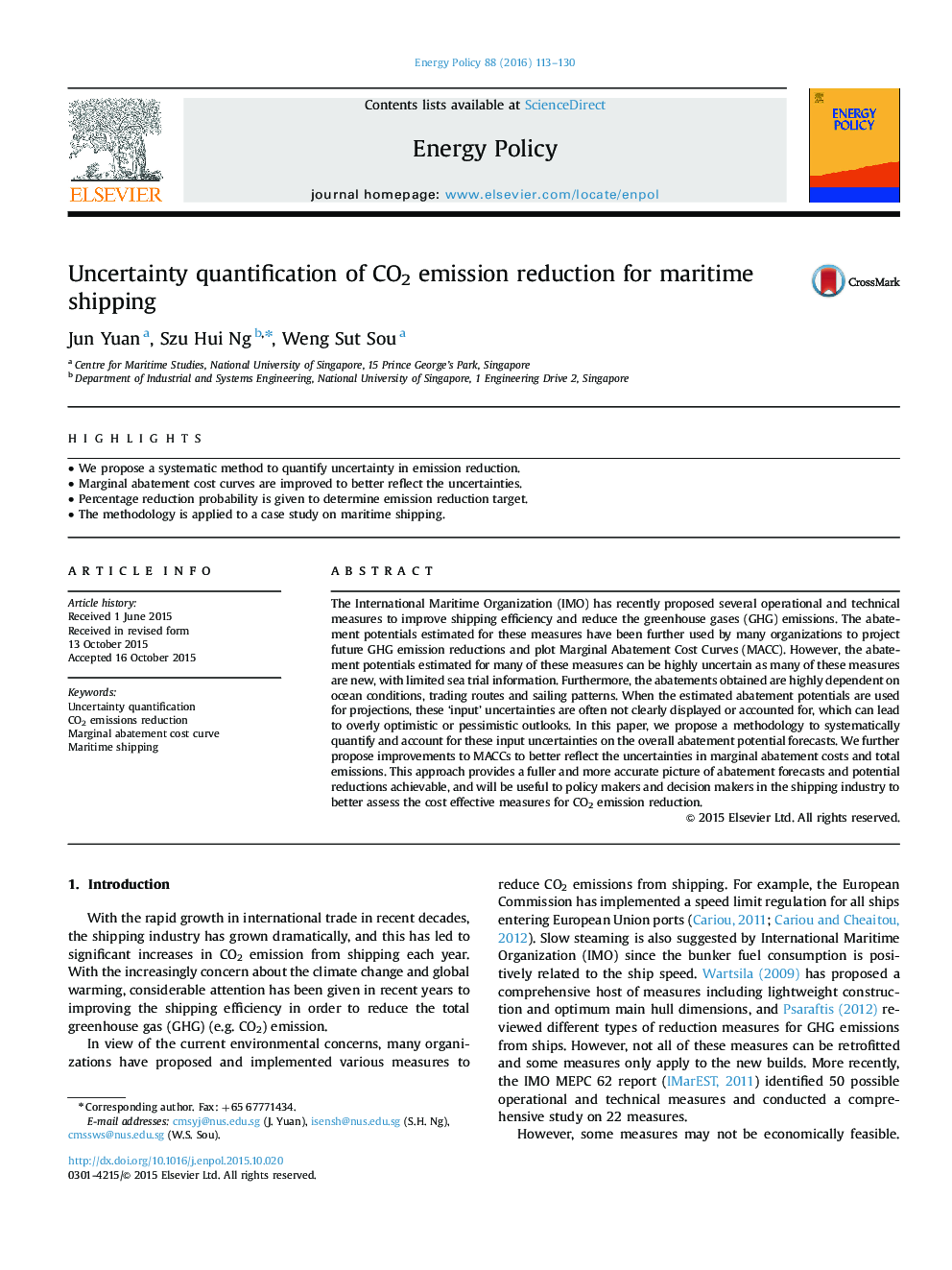| Article ID | Journal | Published Year | Pages | File Type |
|---|---|---|---|---|
| 7400312 | Energy Policy | 2016 | 18 Pages |
Abstract
The International Maritime Organization (IMO) has recently proposed several operational and technical measures to improve shipping efficiency and reduce the greenhouse gases (GHG) emissions. The abatement potentials estimated for these measures have been further used by many organizations to project future GHG emission reductions and plot Marginal Abatement Cost Curves (MACC). However, the abatement potentials estimated for many of these measures can be highly uncertain as many of these measures are new, with limited sea trial information. Furthermore, the abatements obtained are highly dependent on ocean conditions, trading routes and sailing patterns. When the estimated abatement potentials are used for projections, these 'input' uncertainties are often not clearly displayed or accounted for, which can lead to overly optimistic or pessimistic outlooks. In this paper, we propose a methodology to systematically quantify and account for these input uncertainties on the overall abatement potential forecasts. We further propose improvements to MACCs to better reflect the uncertainties in marginal abatement costs and total emissions. This approach provides a fuller and more accurate picture of abatement forecasts and potential reductions achievable, and will be useful to policy makers and decision makers in the shipping industry to better assess the cost effective measures for CO2 emission reduction.
Keywords
Related Topics
Physical Sciences and Engineering
Energy
Energy Engineering and Power Technology
Authors
Jun Yuan, Szu Hui Ng, Weng Sut Sou,
